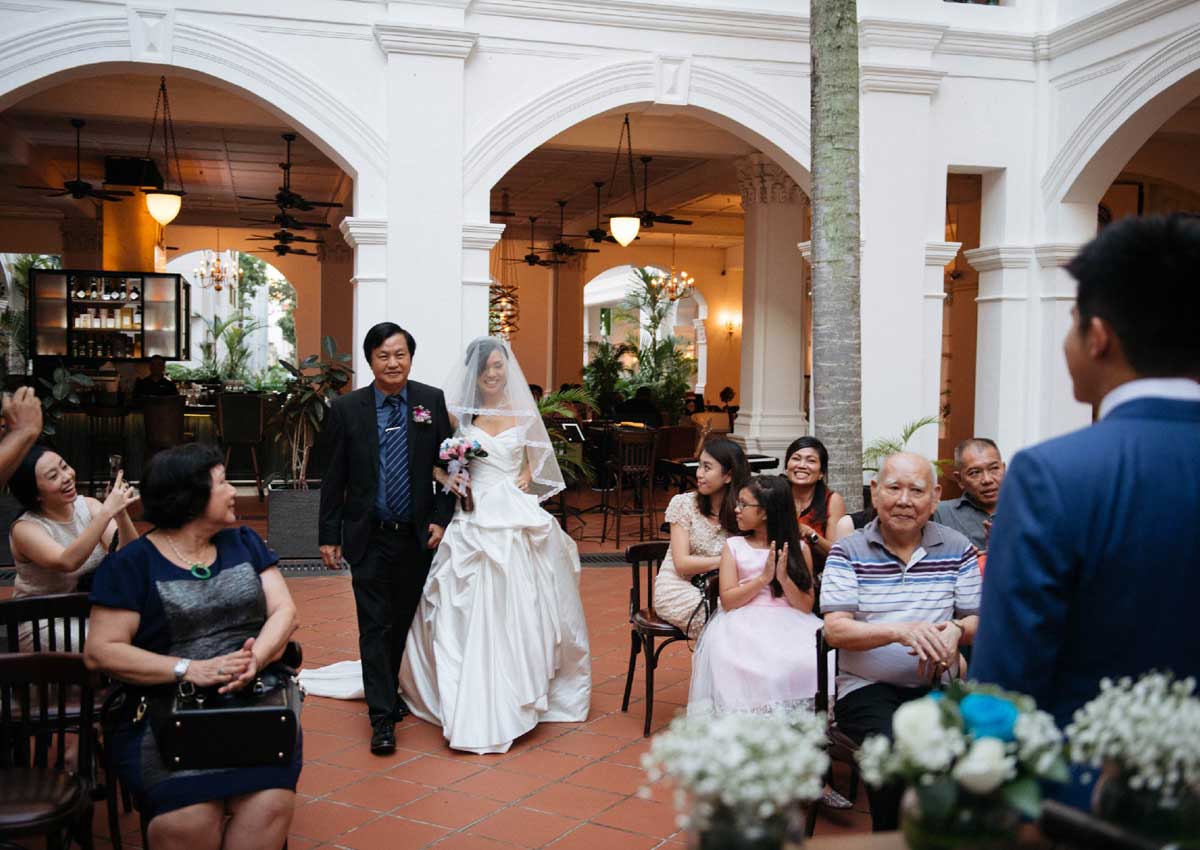MORE Chinese couples here are opting not to have the traditional “gatecrash” ritual on their wedding day, even as a trend of couples preferring smaller, more intimate weddings gains popularity.
The gatecrash ritual is a Chinese tradition and involves bridesmaids setting up obstacles or games for the groom and his entourage to overcome before they can enter the bride’s home.
Common activities include the eating of items that are sour, sweet, bitter and spicy to present the many flavours of marriage – a challenge that the groom must sportingly accept.
However, industry insiders tell My Paper that more couples are doing away with this ritual and they expect the trend to grow.
As many as one in five young couples in their late 20s to early 30s now choose to forgo this ritual altogether, said Daniel Beh, who has shot weddings for 11 years.
Mr Beh, an award-winning photographer who does about 50 shoots a year, said couples now want to keep it “simple” and “dignified”.
“Instead, they will do something meaningful, such as write a poem,” he noted.
However, the 34-year-old added that couples still engage in traditional tea ceremonies.
“It’s just minus the torture,” he said, referring to the tasks that bridesmaids can set up, such as push-ups and embarrassing antics.
Charles Sng, 41, who has done wedding photography since 2005, also noted this growing trend.
“Most of the time, they (opt out because they) don’t find much meaning in the gatecrashing,” he said.
Geri Yeo, a 29-year-old manager, and her engineer husband T. J. Lee, 31, are one such couple who did not have gatecrashing.
Ms Yeo, who tied the knot in July last year, told My Paper that they did not feel the need to have a gatecrash.
“There’s no meaning in making the groom go through obstacles before he meets the bride,” she said.
“It’s really just a logistical headache at the end of the day.”
At the same time, smaller-scale weddings are gaining momentum here.
Tan Weiwei, a 28-year-old senior wedding planner at Chere: Weddings & Parties, who has planned weddings for almost seven years, said about 20 per cent of couples now opt for smaller weddings with 80 to 120 guests.
Traditional Chinese banquet weddings host about 300 guests on average.
Ms Tan added that another trend is for some couples to have large wedding banquets “followed by smaller and more intimate celebrations”.
Sharol Pek, a wedding planner at Eternal Emotion Weddings, said that seven or eight in 10 couples she sees have weddings with less than a hundred guests.
Many prefer smaller-scale weddings for the intimacy and quality time they get with their guests.
Said the 26-year-old: “Couples are able to mingle more… and they don’t find the need to have large banquets, when half the guests are people you do not know or have not met for years.”
The smallest wedding she has planned for a local couple occurred last September, for 25 people at Alkaff Mansion.
Said Bey Wee Li, 28, who did not have a gatecrash ritual and held a “simple wedding lunch celebration” when she got married in April last year: “I think holding a wedding is expensive and it should be kept to just people who are important.”
She added that “parents are more open-minded now”.
Newlyweds now focus on having a meaningful wedding rather than “putting on a grand show just for others”, said Benny Ong, 30, photography art director of wedding photography and videography company Truetolove.
“I personally feel that’s a great approach. The true reason for a wedding is a celebration of the union of two individuals,” he added.
lydialam@sph.com.sg

Get MyPaper for more stories.





